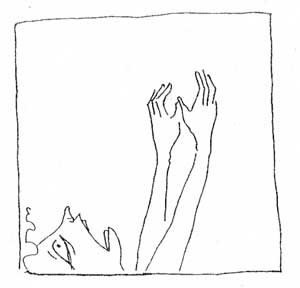You Will Not Carry Your Wounds Alone
Siri Hustvedt gave this speech on October 10, 2018, when the Dr. Guislain "Breaking the Chains of Stigma Award" was presented to the Center for Victims of Torture.
There were no struggles among the jurists for this year’s prize. The Center for Victims of Torture had unanimous support. Victims of torture do not always carry outward signs of what they have endured and survived. The socio-psycho-biological effects of brutality are myriad and dependent on the particular events that occurred, the particular personal histories of the victims, and the particular cultures to which they belong. To suffer lasting effects from torture is normal, not abnormal. The shame and stigma of torture belong to the perpetrators not their victims, but in the real world, the innocent often take the blame. Too often we turn away from the devastating consequences of these acts we deem “inhuman” but are, in fact, all too human. We do not want to look or listen because even looking and listening to victims of torture requires courage. And yet, without that courage, without looking and listening, there is no way forward for any one of us.
Trauma alters time. Sometimes it stops time. For the traumatized person, past and future may disappear and leave only the vivid horror of unspeakable events that remain stubbornly in the present. It is a further truth that in order for a person to leave that perpetual present of monstrous cruelty inflicted on him or her by other human beings, he or she needs the care, trust, and aid of other human beings. I found the following quote from a victim on the Center’s website: “They told me, ‘You’ll be alone with this for the rest of your life. You’ll die with this alone.’ But when I heard about the Center for Victims of Torture, I knew the torturers had lied.” The Center for Victims of Torture exposes that lie of loneliness, day in and day out, one human story at a time.
We are living in an age of rhetorical violence, an age when the celebration of brutish policies is common, when howls of building walls and locking her up have turned into mass entertainment with increasingly sinister meanings. The flying metaphors of human beings as bacterial pollutants to the larger body politic are not unique to the U.S. The bombast of invasive others resonates across Europe and is heard from Turkey to Russia to India to Myanmar. It is only the identity of the “Other” that changes. Words are not irrelevant to the real plights of refugees fleeing torture only to be turned away or separated from their children or held captive in squalid tents and camps.
Let us not be mistaken: Torture is legitimized by speeches, slogans, and chants. The work of the Center for Victims of Torture has always been urgent, necessary, and right, but its labor of healing our fellow human beings by means of medical treatment and various psycho and physical therapies also serves as a vital rejoinder to those who have taken the side of the torturers through the symbolic violence of their thoughts and speech. I cannot think of an organization more deserving of this award here and now in October of 2018. The fact that its headquarters are in Minnesota, the state where I was born and grew up makes me happy and unreasonably proud. But this is a global prize for a global effort that tells a truth that is in itself healing: You are not alone. You will not carry your wounds alone. The torturers lied.
